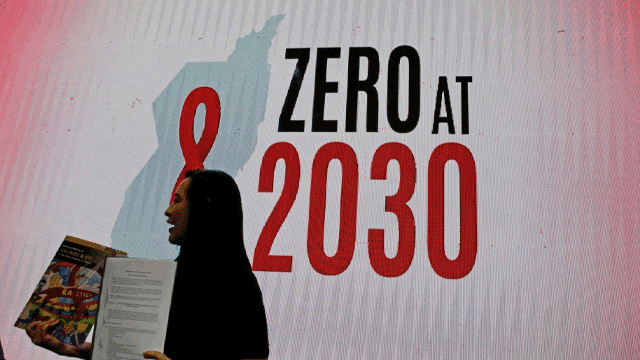
MANILA, Philippines – The Philippines is seriously considering declaring a 'National Public Health Emergency' in response to a surge in Human Immunodeficiency Virus (HIV) infections. Health authorities warn that the current rate of spread is the fastest in the Western Pacific region and express deep concern over the drastic increase in infection rates, especially among the youth.
On June 4, the Philippine Department of Health (DOH) released a statement confirming an unprecedented rapid spread of HIV infections within the country, emphasizing the need for a national response. From January to April 2025, a total of 6,703 new HIV infections were recorded, a 44% increase compared to the same period last year. The average daily number of new cases more than doubled from 21 in 2014 to 48 in 2024, showing an even sharper rise to 56 cases this year.
Philippine Health Secretary Teodoro Herbosa stated that the current situation makes the Philippines "the country with the fastest-spreading HIV epidemic in the Western Pacific region." Furthermore, the fact that a significant portion of new cases are among young people has been highlighted as a serious issue. Indeed, the number of HIV infections among 15-25 year olds this year has reportedly surged by a shocking 500% compared to the previous year. Health authorities have confirmed a 12-year-old boy as the youngest reported case of sexual transmission.
Secretary Herbosa emphasized that while recent MPOX (Monkeypox) cases are also increasing, the spread of HIV infection is a far greater concern. He asserted that "it is urgent to declare a public health emergency, a state of national emergency." In the Philippines, the President can declare a 'public health emergency' if an epidemic threatens national security. This power was most recently invoked during the COVID-19 pandemic in 2020. Such a declaration is expected to provide the legal basis for the government to concentrate health resources and rapidly deploy large-scale prevention and control programs.
HIV is the virus that causes Acquired Immunodeficiency Syndrome (AIDS), but not all HIV-infected individuals develop AIDS. AIDS is diagnosed when immunity falls below a certain level or specific symptoms appear. Early diagnosis and treatment can delay or prevent the progression to AIDS.
The Philippine DOH has identified sexual contact with an infected individual as the primary cause of the current HIV spread, stating that 83% of recently reported cases are related to male-to-male sexual contact. Consequently, health authorities are stressing the importance of practicing safe sex. They recommend the use of contraceptives such as condoms and encourage the use of PrEP (Pre-Exposure Prophylaxis) to reduce the risk of HIV infection. Additionally, they urged adherence to personal hygiene practices that reduce infection risk, such as not sharing personal items like razors, toothbrushes, and syringes.
The Philippines is expanding access to healthcare through its Universal Health Care (UHC) Act, which includes infectious disease prevention and control programs. Some health centers and non-governmental organizations (NGOs) offer anonymous and free HIV testing. Therefore, individuals who suspect infection or feel anxious are strongly encouraged to visit a healthcare facility early for counseling and testing. Secretary Herbosa emphasized that HIV is no longer a death sentence but a treatable condition, urging intensified efforts in HIV testing, prevention, and treatment.
[Copyright (c) Global Economic Times. All Rights Reserved.]




























